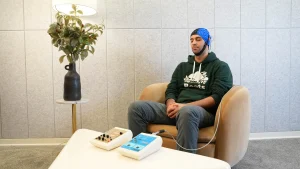In the shadows of despair, there exists a glimmer of hope – the possibility of overcoming depression. As we navigate the complex labyrinth of mental health, it’s essential to shed light on the causes, debunk myths, and explore viable solutions. Let’s embark on a journey to understand depression, separate fact from fiction, and discover effective strategies for overcoming this formidable adversary.
Understanding the Causes of Depression
Depression is a multifaceted condition with a variety of contributing factors. Biological, psychological, and environmental elements converge to create a perfect storm that can engulf an individual’s mental well-being. Genetics, brain chemistry imbalances, trauma, chronic illness, and prolonged stress are some common triggers for depression.
Myths and Facts About Depression
To combat depression effectively, it’s crucial to dispel misconceptions that often surround this mental health disorder.
Myth: Depression is just a prolonged state of sadness.
Fact: While sadness is a part of depression, it goes beyond mere emotions. Depression affects cognitive abilities, physical health, and daily functioning.
Myth: Depression is a sign of weakness.
Fact: Depression is not a weakness. It is a medical condition that can affect anyone, regardless of their strength or resilience.
Myth: Ignoring depression will make it go away.
Fact: Ignoring depression can exacerbate the condition. Early intervention and seeking professional help are vital for effective management.
Myth: Medication is the only solution.
Fact: While medication can be beneficial, it is just one piece of the puzzle. Various therapeutic approaches and lifestyle changes can significantly contribute to overcoming depression.
Solutions for Overcoming Depression
Exercise:
Physical activity is a powerful antidote to depression. Regular exercise releases endorphins, the body’s natural mood lifters. It also helps improve sleep, reduce stress, and boost self-esteem. Incorporating a mix of aerobic exercises and strength training into your routine can make a significant impact on mental health.
Breathing and Yoga:
Mindful breathing and yoga practices are effective tools for managing depression. Deep, rhythmic breathing can activate the body’s relaxation response, while yoga combines physical postures with breath control to promote mental and emotional well-being. Integrating these practices into daily life can enhance overall resilience.

Journaling:
Putting pen to paper can be a therapeutic outlet for expressing and processing emotions. Journaling allows individuals to gain insights into their thoughts and feelings, fostering self-awareness and aiding in the identification of patterns contributing to depression. It serves as a valuable tool in self-reflection and self-discovery.
Neurofeedback:
Neurofeedback is an innovative technique that trains the brain to regulate its activity. By providing real-time feedback on brainwave patterns, individuals can learn to control and optimize their brain function. This non-invasive approach has shown promise in alleviating symptoms of depression by promoting healthier neural pathways.
Photobiomodulation:
Photobiomodulation, or light therapy, involves exposure to specific wavelengths of light to improve mood and alleviate depressive symptoms. Natural sunlight and specialized light therapy lamps can positively impact circadian rhythms and regulate serotonin levels, offering a non-invasive and drug-free option for overcoming depression.

Transcranial Magnetic Stimulation (TMS):
TMS is a cutting-edge treatment that uses magnetic fields to stimulate nerve cells in the brain. This non-invasive procedure has shown efficacy in treating depression when traditional methods prove ineffective. TMS is particularly beneficial for individuals resistant to medication or those seeking alternative options.
Biofeedback:
Biofeedback involves monitoring physiological functions such as heart rate, muscle tension, and skin temperature to gain awareness and control over the body’s responses to stress. Learning to regulate these functions can have a positive impact on mood and contribute to overall mental well-being.
Counseling:
Professional counseling or therapy is a cornerstone in the journey to overcoming depression. Trained therapists can help individuals explore and address underlying issues, develop coping strategies, and provide valuable support. Cognitive-behavioral therapy (CBT) and other therapeutic modalities are effective in treating depression.

Conclusion:
Overcoming depression is a multifaceted process that requires a comprehensive approach. By understanding the causes, dispelling myths, and embracing a variety of solutions, individuals can navigate their way out of the darkness. Whether through physical activities, mindfulness practices, innovative therapies, or professional counseling, there is light at the end of the tunnel for those battling depression. It’s a journey that may be challenging, but with perseverance and the right support, the path to recovery becomes clearer, and the possibility of a brighter future emerges.
Elumind Centres for Brain Excellence is an integrated mental health centre offering solutions that can help you with your mental/brain health needs. To start your journey, book your FREE 15-MINUTE PHONE CONSULTATION. We are here for you.









